Telling, Turning Moments
in the Classical Political World
Telling, Turning Moments
in the Classical Political World
Jan H. Blits

Published by Lexington Books
A division of Rowman & Littlefield Publishers, Inc.
A wholly owned subsidiary of The Rowman & Littlefield Publishing Group, Inc.
4501 Forbes Boulevard, Suite 200, Lanham, Maryland 20706
www.lexingtonbooks.com
Estover Road, Plymouth PL6 7PY, United Kingdom
Copyright 2011 by Lexington Books
All rights reserved. No part of this book may be reproduced in any form or by any electronic or mechanical means, including information storage and retrieval systems, without written permission from the publisher, except by a reviewer who may quote passages in a review.
British Library Cataloguing in Publication Information Available
Library of Congress Cataloging-in-Publication Data
Blits, Jan H.
Telling, turning moments in the classical political world / Jan H. Blits.
p. cm.
Includes bibliographical references and index.
ISBN 978-0-7391-6449-5 (cloth : alk. paper) ISBN 978-0-7391-6451-8 (electronic)
1. GreecePolitics and governmentTo 146 B.C. 2. RomePolitics and government. 3. GreecePolitics and governmentTo 146 B.C.Historiography. 4. RomePolitics and governmentHistoriography. 5. GreecePolitics and governmentTo 146 B.C.Sources. 6. RomePolitics and governmentSources. 7. Political cultureGreeceHistoryTo 1500. 8. Political cultureRomeHistory. 9. Social changeGreeceHistoryTo 1500. 10. Social changeRomeHistory. I. Title.
DE89.B5 2010
938dc22
2010038569
 The paper used in this publication meets the minimum requirements of American National Standard for Information SciencesPermanence of Paper for Printed Library Materials, ANSI/NISO Z39.48-1992. Printed in the United States of America
The paper used in this publication meets the minimum requirements of American National Standard for Information SciencesPermanence of Paper for Printed Library Materials, ANSI/NISO Z39.48-1992. Printed in the United States of America
To Stephen E. Jenkins,
with deepest appreciation and gratitude

Contents

Foreword
The essays in this volume examine developments in the classical political world which are at once turning and telling moments. All the moments possess the double character of being decisive turning points which also reveal fundamental aspects of the ancient political world. They are informative in both senses of the wordat once formative and illuminating.
The moments vary considerably from one another. Covering more than three-quarters of a millennium, they begin with Theseuss founding of Athens and Romuluss founding of Rome. They include Lucretias attempt to redeem her lost honor and Brutuss establishment of the Roman Republic; Alexanders conquest of the world from Greece to India and its effect on the pursuit of the noble in Greece and in Rome; the Romans most humiliating defeat at the Caudine Forks and their sudden revival and subsequent mastery of the Italian peninsula; the murders of the Gracchi, the first political murders in Republican Rome, and the century of political violence and civil wars which followed; and the initial resistance to the art of rhetoric in Rome, its eventual adoption, and the consequent subversion of Roman authority. They end with Augustuss establishment of the Principate. The moments span the classical political world.
Contemporary scholars of ancient history are chiefly concerned with what could be called factual questionsquestions of literary sources and historical accuracy. To take two examples (virtually at random), one historian, discussing Alexanders last plans, writes: [T]he passage in Arrian is little help. We cannot tell whether any of the sources he read had precisely the plans in the form in which Diodorus reports them.... If indeed he did read the same source,... we My interest, on the other hand, is not in the sources for, or the reliability of, historical facts, but in the significance of the facts and reports. I am concerned not with whether, or how, the ancient historians meet the professional standards of present-day historiography, but with the way they themselves understandand intend us to understandthe words and deeds which they relate. My aim is to understand the ancient historians understanding of the ancient world, their understanding of their own historical traditions and developments.
Scholars today, citing their own historiographic research standards, often criticize ancient historians (other than Thucydides
Most ancient historians, however, do not consider the lack of direct evidence a serious problem. Their intention differs from that of the current scholars who usually research their books. The ancient historians see their books primarily not as works of research, but as works of reflection. They understand the word history to refer to their study of their subject as well as to their subject itselfto their own inquiry as well as its object. To the ancient writers, historical veracity and historical verification are not to be confused.
The contemporary opposition between history and literature, although stemming most directly from nineteenth-century German scholarship, Many ancient writers, however, see history as essentially related to, and even similar to, poetry: History is very close to the poet. In a sense, it is a prose poem (Quintilian, Institutio oratoria, 10.1.31). History... is a narrative in an ornate style (Cicero, Orator, 66). For the most part, the writers whom I discuss see themselves as historian-poets. For them, the line between history and poetry is permeable. Dio Cassius, for example, introduces his history of Augustuss Principate with a private debate between Agrippa and Maecenas on the question of how Rome should be ruled following the end of Romes long civil wars. Maecenas argues that Caesar should consolidate his power and establish an undisguised monarchy; Agrippa urges him to give up his power and restore the Republic (Dio Cassius, Roman History, 52.240). For reasons both obvious and not obvious, the debate is Dios work of historical fiction. Yet, as we shall see, at least partly because of its fictional character, the imagined debate brings to light both the truth behind Augustuss most important decision and the essential nature of his new regime. Its fictional character points up the reality underlying the regimes appearance. The fiction brings out the truth.
Dio is not alone. Despite prominently representing the Roman genre of historical annals, Livy frames the Preface to his history with indications that he sees himself as writing epic poetry. The Preface begins with a dactylic hexameter, the meter of epic poetry, as Quintilian observes (Quintilian, 9.4.72),
I use the term moment in its wide temporal sense. All the moments examined combine brevity and duration, though in a variety of ways. While all have both immediate and enduring effects, some also combine sudden causes and protracted conditions. The rape and death of Lucretia, for example, occur in less than a day and are followed immediately by Brutuss overthrow of the Roman monarchy and establishment of the Republic. Yet, as Livy emphasizes, Rome had to wait two centuries before it could establish a stable republic. If Brutus (or anyone else) had acted sooner, Rome would have suffered the greatest harm. Freed suddenly from the absolute rule of a king, it would have disintegrated into dissension before the people had the time to acquire the deep attachments and mature strengths needed for liberty (Livy, 2.1.36). Similarly, the murder of Tiberius Gracchus is sudden and in some respects even accidental. Yet, just as it produced a century of civil war and domestic violence, and finally led to the fall of the Republic, it was brought about by changes in Rome produced by the destruction of Carthage and ultimately by Romes centuries of conquest and expansion.
Next page

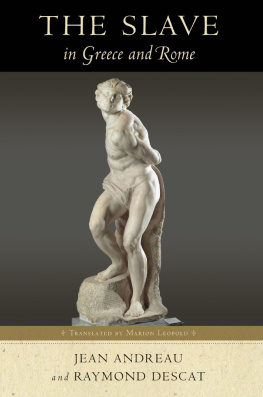
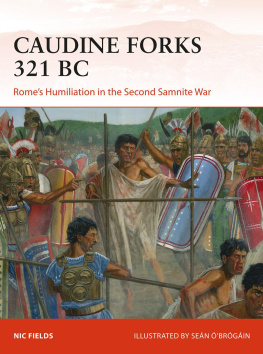
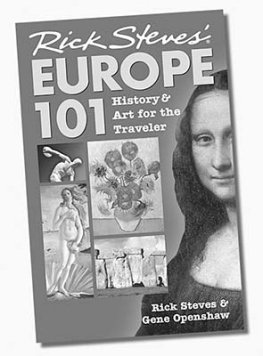
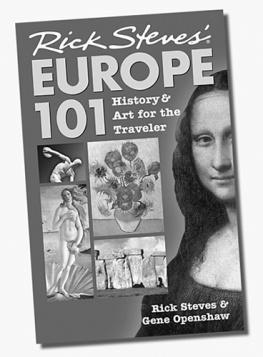
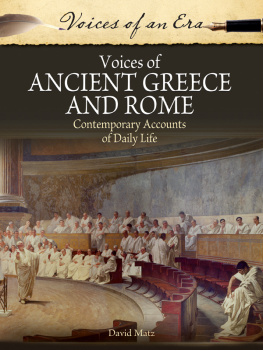
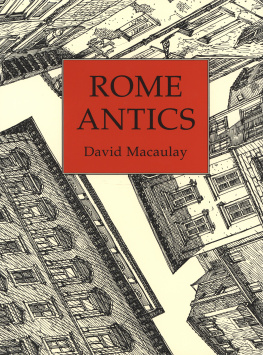
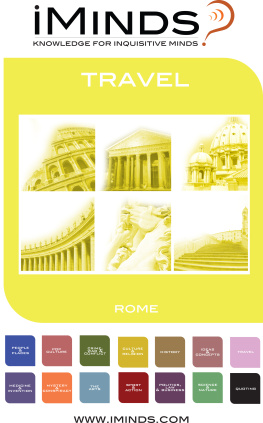

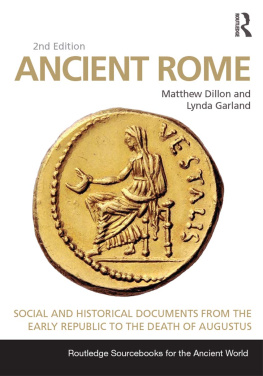
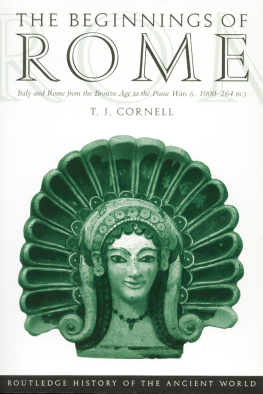
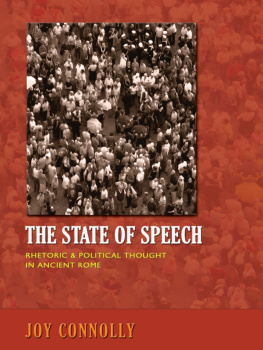

 The paper used in this publication meets the minimum requirements of American National Standard for Information SciencesPermanence of Paper for Printed Library Materials, ANSI/NISO Z39.48-1992. Printed in the United States of America
The paper used in this publication meets the minimum requirements of American National Standard for Information SciencesPermanence of Paper for Printed Library Materials, ANSI/NISO Z39.48-1992. Printed in the United States of America